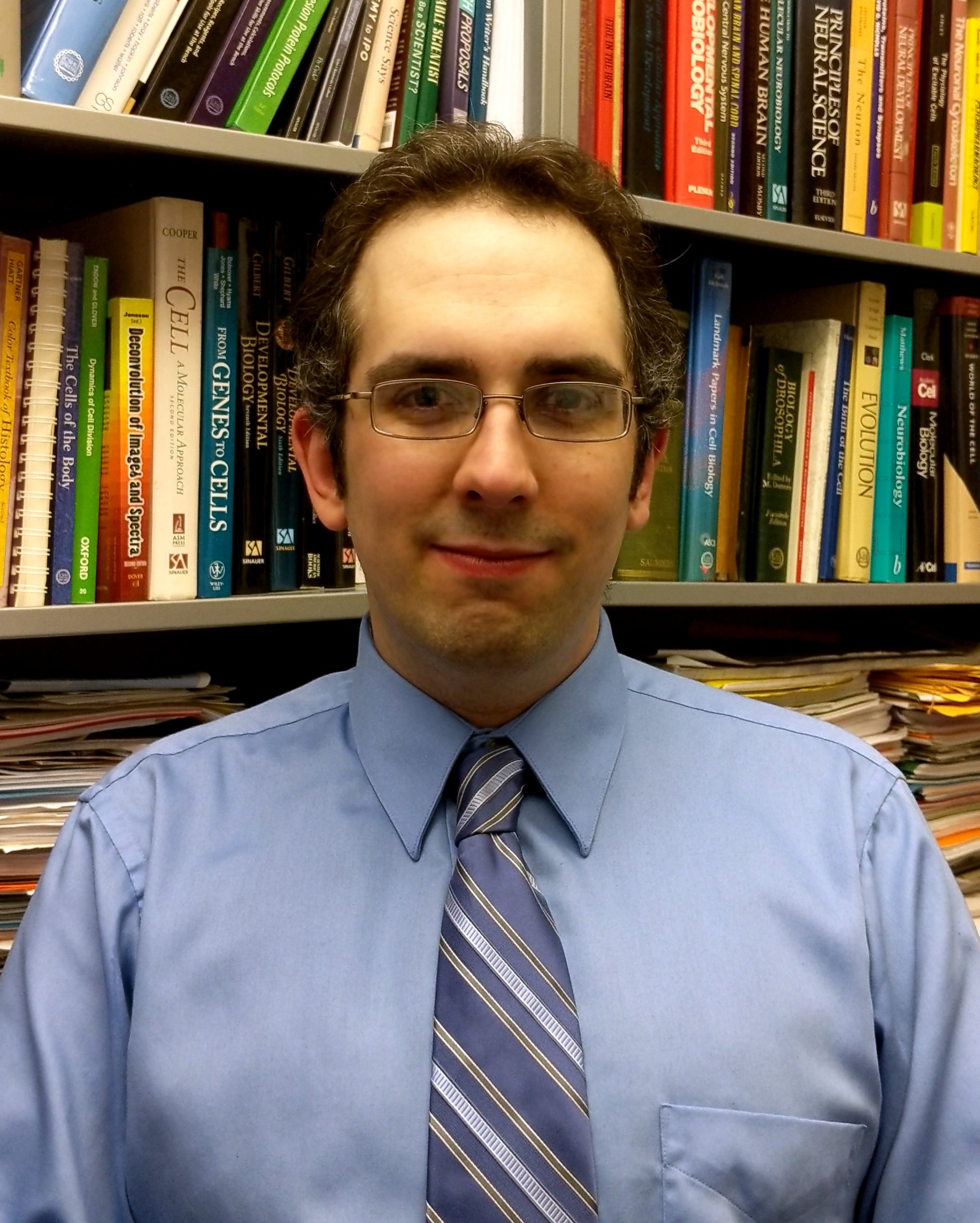
About
Dr. Klein is molecular pharmacologist with extensive experience in neuropharmacology and drug discovery science. He obtained his bachelor's degree in Biochemistry and Molecular Biology at the State University of New York at Albany and his Ph.D. in Neuropharmacology and Neuroscience from Albany Medical College in 2012. His postdoctoral experience began with the investigation of novel serotonin receptor pharmacology, leading to a fellowship at the Vanderbilt Center for Neuroscience Drug Discovery at Vanderbilt University. There, he became the lead pharmacologist for M4 muscarinic receptor research, and in association with AstraZeneca, he developed novel approaches for the treatment of cognitive deficits associated with Alzheimer’s Disease and movement disorders related to Parkinson’s Disease.
Dr. Klein began teaching graduate and medical students at Albany Medical College and served as a member of the Graduate Education Committee. His passion for teaching would lead him to his current position as Lecturer in the Department of Biological Sciences at Rensselaer Polytechnic Institute, which has afforded him the opportunity to introduce undergraduates to interdisciplinary research approaches in a modern research environment. His experience in drug discovery and development provides insights into these areas and a distinct awareness that basic biology research and biomedical research are becoming more reliant on the fields of physics, engineering, and computer science.
Ph.D. Albany Medical College, 2012 - Neuropharmacology & Neuroscience
B.S. State University New York at Albany, 2006 - Biochemistry and Molecular Biology
Postdoctoral Research & Training
Postdoctoral Fellow, Vanderbilt Center for Neuroscience Drug Discovery, Vanderbilt University Medical Center, 2011-2013
Research
Dr. Klein’s primary area of research revolves around the serotonin 5-HT1E receptor. This receptor is highly expressed in the human brain, with the highest expression levels known to be in the hippocampus, frontal cortex, and neurovasculature. The receptor’s physiological role is largely unknown, but it likely plays significant roles in serotonin's actions in the CNS and the actions of various serotonergic drugs. With its high expression level in the hippocampus, particularly in the dentate gyrus, there is a strong possibility the 5-HT1E receptor is involved in memory. And considering the neuroprotective effects of 5-HT1E signaling in cultured human neurons, this receptor is a promising druggable target for therapies aimed at correcting memory deficits, like those associated with Alzheimer’s Disease. Dr. Klein has contributed significantly to the literature investigating the pharmacology of this receptor and its distribution in the mammalian brain. In his current work, he aims to elucidate the molecular properties of this receptor. With a better understanding of the 5-HT1E receptor's signal transduction mechanisms, protein interactions, dimerization state(s), and trafficking to and from the plasma membrane, we can better address this receptor’s role in the body and its potential as a therapeutic drug target.
Cell biology, Neuroscience, Signal transduction, Toxicology
Teaching
BIOL 4740 - Advanced Cell Biology Lab (summer & fall)
This course explores mammalian cell biology, provides hands-on experience with a variety of tissue culture techniques, and aims to prepare students for graduate level research or a career in the biotechnology or biopharmaceutical fields. Dr. Klein encourages students to explore a wide range of research topics including cancer biology, stem cell biology, neuroscience, pharmacology, and immunology. Students develop an independent project during the first half of the semester wherein they write a formal research proposal, refine their experimental design, and establish appropriate protocols. In the second half of the semester, students carry out the research they proposed using the advanced tools at their disposal in the Science Center. At the end of the semester, students present their findings in a formal presentation to the class and write a publication-quality manuscript.
BIOL 2120 & BIOL 2125 - Introduction to Cell and Molecular Biology lecture (spring) & lab (fall & spring)
This is an introductory course in cell structure and function. It is intended for Biology and Biomedical Engineering majors, and covers such topics as chemical composition of cells, molecular structure and function of organelles, membrane transport, DNA replication, gene transcription and translation, and the basic biochemistry underlying cellular behavior including cancer cell biology. The lab provides hand-on experience with standard techniques and equipment used in biochemistry and molecular biology. Bright-field, phase-contrast, and fluorescence microscopy are employed to study cellular processes and gene expression in prokaryotic and eukaryotic organisms.
BIOL 1960 - Biology in Popular Fiction (summer)
This course is intended for all majors and examines how biology and biotechnology are represented in popular fiction across multiple types of media. Several themes are explored, including genetic engineering, human genome modification, cloning, eugenics, restorative medicine, enhancement/augmentation of the human body, xenografts, synthetic organ transplants, and pandemic disease. A central goal of this course is to familiarize students with the latest technologies and science applicable to these themes. Students explore the future potential of today’s technologies, identify obstacles preventing works of fiction from becoming reality, and propose potential paths to overcome these obstacles. To this end, students learn how to investigate scientific literature and formulate hypotheses; they become familiar with peer-reviewed scientific journals and other tools used by scientists to communicate their findings.
Publications
The following is a selection of recent publications in Scopus. Michael Klein has 13 indexed publications in the subjects of Pharmacology, Toxicology and Pharmaceutics, Biochemistry, Genetics and Molecular Biology, Medicine.